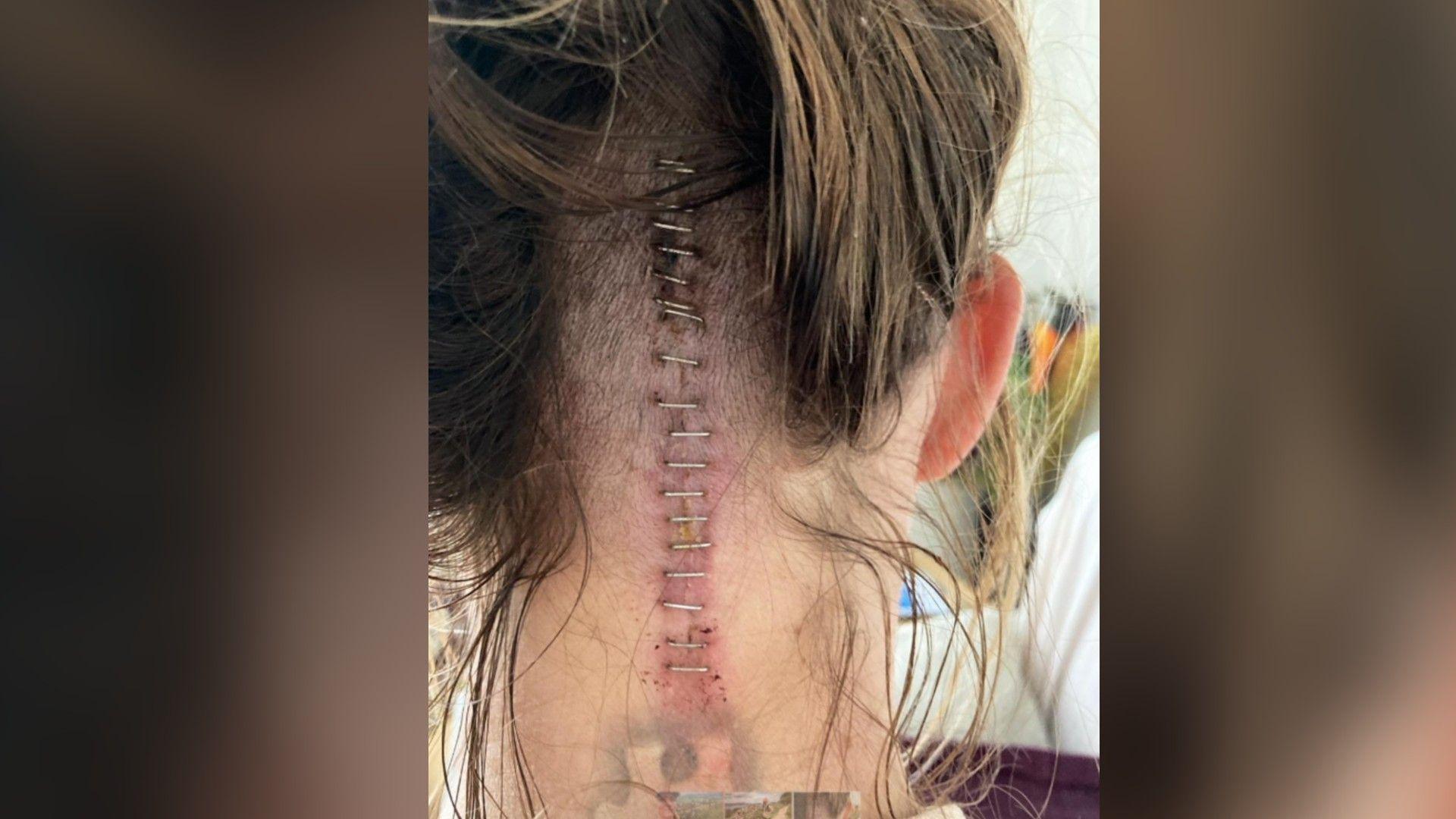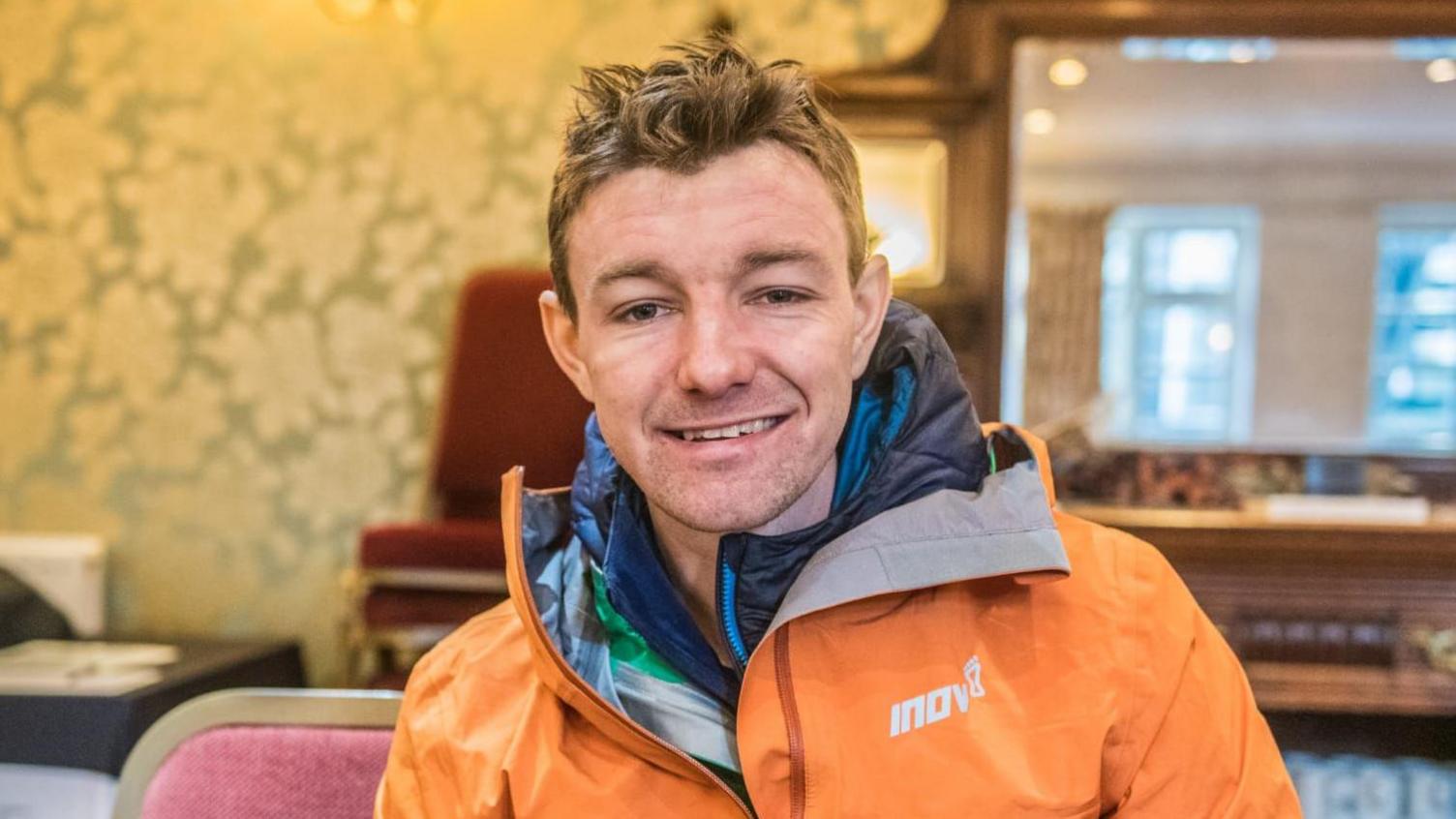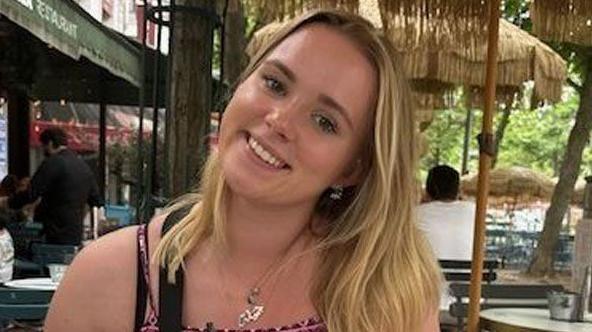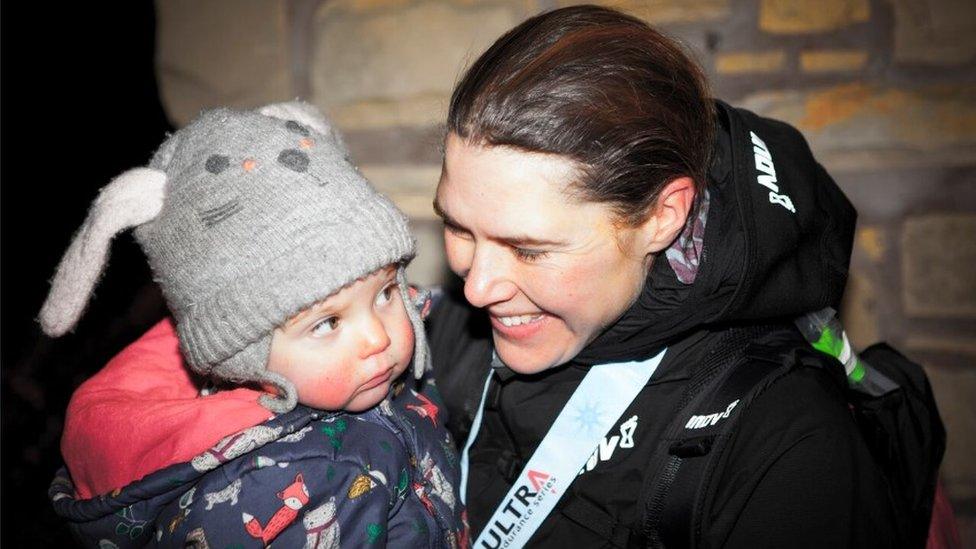'I couldn't walk in a straight line - now I'm doing an ultramarathon'

Mel Sykes was diagnosed with a rare brain condition that affected her balance
- Published
When Mel Sykes was diagnosed with a rare brain condition, she was left unable to walk in a straight line, let alone run in the races she loved entering. After undergoing surgery, the 42-year-old is now preparing to tackle the Spine Race - a gruelling ultramarathon through tough Pennine terrain.

Mel was told she may never run again
Mel, from Holmfirth, West Yorkshire, was told she may never run again after her diagnosis with Chiari malformation, which affects balance. She completed an 18-mile race just months after a brain operation.
"I never thought I'd be up and about again - let alone doing crazy things like this," she said.
Her symptoms started as double vision - which her GP was "not too concerned about" - but soon progressed to slurred speech, head tremors and pins and needles in her face.
She said: "Everyone kept asking me if I felt tired. At this point I had a full-time job and was running 100-mile races - I didn't know what was normal tired or poorly tired.
"My colleagues were so supportive throughout all of the investigations but it became too difficult to manage my work with the double vision and I had to stop driving, so then I had to go off work.
"As soon as I did, all of the other symptoms came on pretty quickly."
Mel was referred to a specialist neurosurgery team at Leeds General Infirmary and was immediately diagnosed by consultant neurosurgeon Ian Anderson, who said her case was "one of the most substantial" he had ever seen.
Mel recalled: "As soon as I saw Mr Anderson, he knew straight away. He said they didn't get these very often.
"It was baffling that I actually felt well, except for the effect on my balance and my eyesight."
Mel had her first appointment on a Tuesday, was admitted to hospital on the Friday, and by Monday was in theatre.
She said: "I was in tears. Not because I was scared, although I probably should have been knowing I was going to have brain surgery.
"But I was so relieved that I had an answer and that Mr Anderson was so sure he could fix it."
Chiari malformation causes excessive amounts of the cerebellum part of the brain to push out through the bottom of the skull.
This then presses onto the spinal cord and brain stem, causing the symptoms Mel had.
After she came round Mel asked the doctors what the prognosis was.
"I asked them if I'd ever be able to run an ultramarathon again.
"They told me that they couldn't guarantee I'd be able to run at all, let alone to the extremes I'd been doing.
"I had to accept it and concentrate on my recovery."
Once Mel was discharged she spent time at her parents' house, and friends and family would pick her up to take her out and about.
"I was up on my feet quite quickly but walking small distances at first, to the end of the street and back was all I could manage as long as a friend was with me.
"By the end of December 2023 I was able to start some slow running again.
"Then in February 2024, I ran an 18-mile race - just four months after brain surgery.
"I was able to stop wearing my glasses about three months ago as my vision is back to normal.
"Sometimes I'm a bit wobbly on my feet still but I'm doing great."

She is currently preparing for the biggest run yet - the 268-mile Spine Race
Mel is currently training for her biggest race yet - 268-mile endurance run the Spine Race, which takes runners all the way along the Pennine Way from Edale in Derbyshire to Kirk Yetholm in Scotland.
It starts on 12 January and each competitor has one week to complete it.
She added: "I really struggled to find anyone else who had the same thing as me, so I want to share my story as a way of encouraging others through it, and letting them know that recovery and getting back to your hobbies is possible."
Mr Anderson, who operated on Mel, said: "Melanie is an inspirational patient.
"It's humbling to see how courageous and determined our patients can be.
"I feel sure that her fantastic recovery is due, in no small amount, to her positive attitude."
Listen to highlights from West Yorkshire on BBC Sounds, catch up with the latest episode of Look North or tell us a story you think we should be covering here, external.
Related topics
- Published22 January 2024

- Published27 September 2024

- Published17 January 2019
